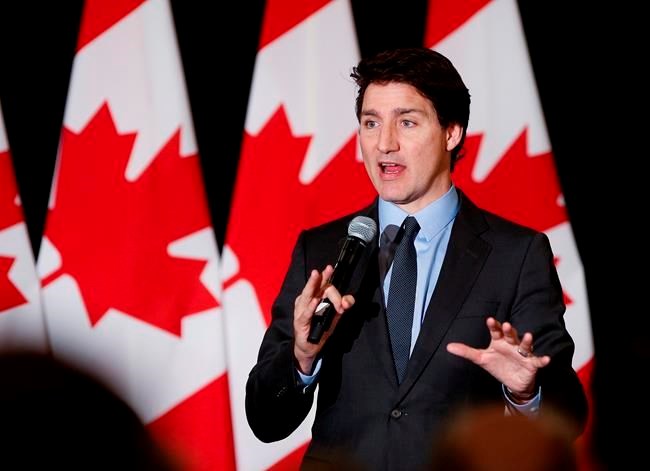VICTORIA — Prime Minister Justin Trudeau said he was "as surprised as" British Columbia Premier David Eby after a firm received Health Canada licence amendments to produce and sell cocaine.
Trudeau said Friday that the federal government was "working very quickly" with Adastra Labs of Langley, B.C., "to correct the misunderstanding" caused by the company's statement saying it was looking at commercializing cocaine as part of its business model.
He said Adastra did not have permission to sell cocaine on the "open market," while Health Canada said the firm could only sell to other licence holders.
This comes as a second B.C. company says it is now licensed to produce, sell and distribute cocaine, as well as opium and MDMA, also known as ecstasy.
Victoria's Sunshine Earth Labs, a biosciences firm that "aims to bring safer supply of drugs to the global market," says in a news release it obtained an amended Controlled Drug and Substances Dealer's Licence to include MDMA and cocaine last year.
In a written statement, Health Canada says it "thoroughly reviews applications" to ensure licensees follow all existing policies on public health and safety.
The federal agency says Adastra's licence is for "scientific and medical purposes only," and licensees can only sell to others who are licensed to possess the substance.
"Health Canada has contacted the company to reiterate the very narrow parameters of their licence," the agency says. "If the strict requirements are not being followed, Health Canada will not hesitate to take action, which may include revoking the licence."
Trudeau said commercializing decriminalized cocaine "is not something that this government is looking at furthering."
"I was as surprised as the premier of British Columbia was to see that a company was talking about selling cocaine on the open market or commercializing it," he said, adding that Adastra's licence was "not a permission to sell it commercially or to provide it on an open market."
The public uproar began after B.C. Opposition leader Kevin Falcon raised the issue during question period at the provincial legislature on Thursday.
In response, Eby said he was "astonished" by the news, and the province had not been notified or consulted by Health Canada on the matter.
Adastra Labs said Health Canada approved its licence amendment to produce, sell and distribute cocaine on Feb. 17.
CEO Michael Forbes had said in a statement that it would evaluate how the commercialization of the substance fits in with its business model in an effort to position itself to support the demand for a safe supply of cocaine.
Eby said the licence "is not part of our provincial plan," referring to the ongoing effort to stem the overdose death rate, with an average of more than six people dying every day in B.C. in 2022.
B.C.'s drug decriminalization policy went into effect at the end of January, allowing individuals who are 18 and over to possess up to 2.5 grams of opioids, cocaine, methamphetamine and MDMA without criminal penalties.
The decriminalization is a three-year pilot project.
-- By Chuck Chiang in Vancouver
This report by The Canadian Press was first published March 3, 2023.
The Canadian Press



